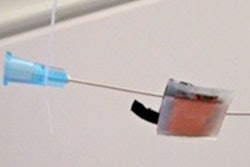
In the last few decades, Toyota has been a leader in implementing new technology on the plant floor — everything from robotics to automated processes that can churn out parts safely and far faster than with human interaction — and has succeeded because of that. But now the company seems to be turning back toward craftspeople who spend their days forging crankshafts by hand rather than programming machines to do the same work.
Bloomberg reports that Mitsuru Kawai, who has worked at Toyota for more than 50 years, is hearkening back to the day when “gods” made parts with a speed and quality that astounded others. He is quoted: “We need to become more solid and get back to basics, to sharpen our manual skills and further develop them. When I was a novice, experienced masters used to be called gods, and they could make anything.”

No one should expect that their next Corolla will be handmade — not by any means — because the company is using human labor as a means to figure out ways to improve automated production lines. Kawai’s idea is that if his employees are more skilled, and less a “human robot” that simply moves parts from one machine to another or performs the same task repeatedly during their shift, they might be able to better identify inefficiencies in the process or think up ways to make it better.
Kawai has developed 100 manual-based workstations throughout the company’s oldest plant in Japan. These stations involve, for example, forging crankshafts via twisting, turning and hammering the metal directly — a far cry from the company’s automated method currently used in production. The company says that lessons learned in those manual sessions has reduced scrap and shortened the production line 96 percent.
Kawai adds in the Bloomberg piece: “We cannot simply depend on the machines that only repeat the same task over and over again. To be the master of the machine, you have to have the knowledge and the skills to teach the machine.”
Kawai’s position actually makes a lot of sense. If we reach an era where no one knows how to actually manipulate a piece of metal into a crankshaft or any other part in a car, how will we effectively program a machine to do it? One might argue that computers will someday render human intuition completely obsolete — a computer can test thousands of iterations of a part digitally in hours that would take years to do manually — but we certainly haven’t gotten anywhere near there yet.
And even if that does happen, the day we’ve simply forgotten how to build a complex part by hand means that we’ve lost a certain amount of potential in knowledge. How would be know there aren’t efficiencies still to be unlocked in an “old” way of thinking and building?
That seems to be Kawai’s idea — and it seems to be working. Giventhat Toyota is considered an innovator in manufacturing philosophy and technology, it will be interesting to see whether other automakers follow suit — and if they do, how they’ll do it. It could just be the start of a “post-robotics” age in automotive manufacturing.
And by that, of course, I just mean that there will still be some jobs leftover for the humans once the robots take over.
What do you think? Is there a good reason robotics are so prevalent these days, which Kawai seems to not understand? Is he headed down the wrong road or the right one? Have you seen ways where manual knowledge has helped solve an automation problem? Sound off below.
To hear more from Joel Hans, the managing editor of Manufacturing.net, subscribe to our newsletters or follow him on Twitter @Mnet_JoelHans.






















